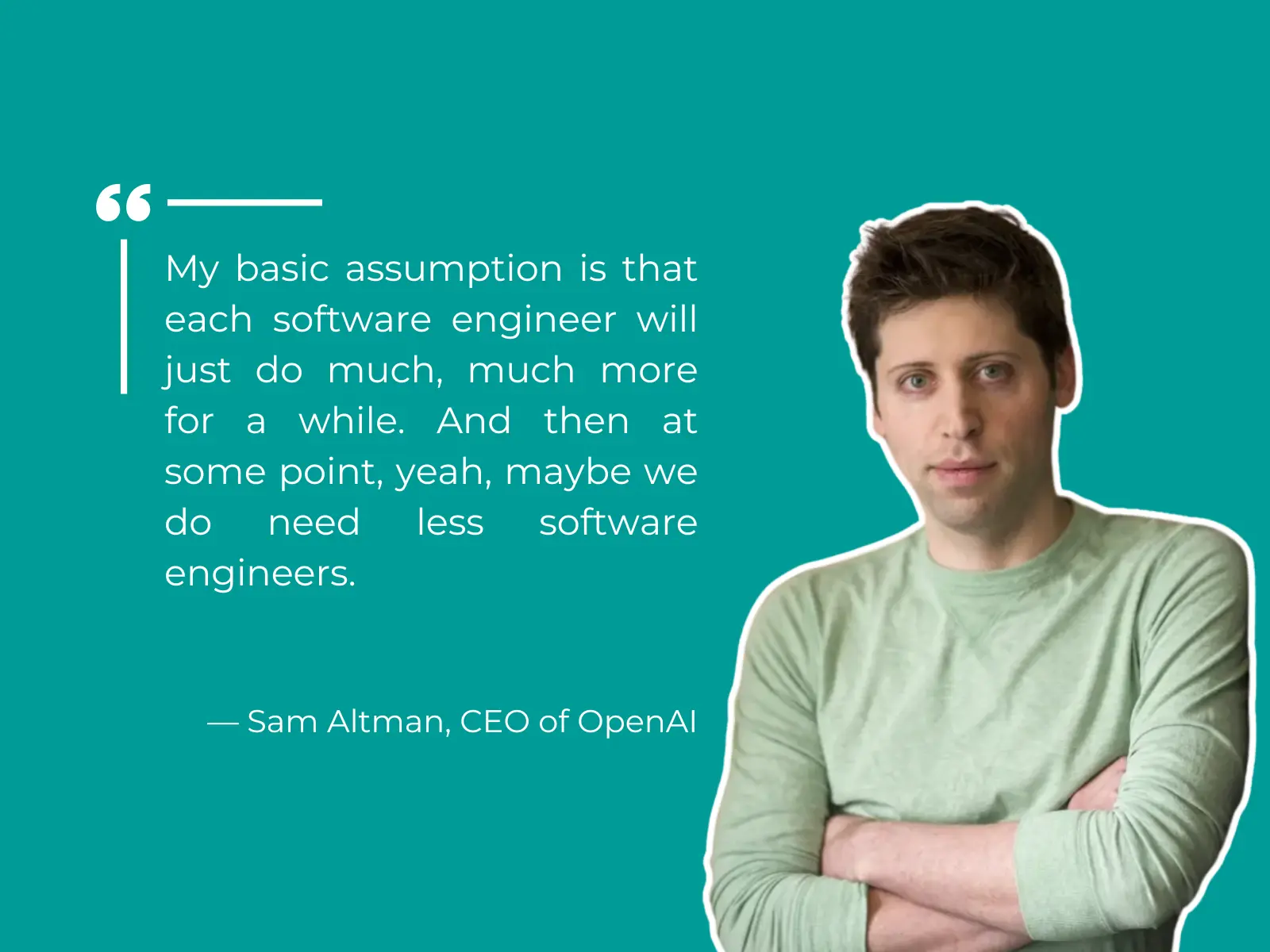 source
When two leading voices in the AI world discuss a future with fewer developers, it starts to feel less like a bold claim and more like a narrative being shaped by the creators of these technologies themselves. But is that the whole story?
These kinds of claims sound dramatic, but staying level-headed is essential. Yes, AI is changing how we approach programming and doing it fast. Tools like GitHub Copilot, ChatGPT, Claude, and others are helping developers write, edit, and review code more efficiently.
But that doesn't mean programmers are no longer needed, far from it.
source
When two leading voices in the AI world discuss a future with fewer developers, it starts to feel less like a bold claim and more like a narrative being shaped by the creators of these technologies themselves. But is that the whole story?
These kinds of claims sound dramatic, but staying level-headed is essential. Yes, AI is changing how we approach programming and doing it fast. Tools like GitHub Copilot, ChatGPT, Claude, and others are helping developers write, edit, and review code more efficiently.
But that doesn't mean programmers are no longer needed, far from it.
Why Do Some Experts Believe AI Will Replace Programmers?
At first, these concerns might seem reasonable. Artificial intelligence is moving forward at an incredible speed. Many of today's technologies felt like science fiction just a few years ago. Now, they're part of everyday life. Generative models like ChatGPT, Claude, Gemini, and CodeWhisperer can write complex code in different languages—from Python and JavaScript to C++ and Rust. They do it fast, consistently, and without getting tired. Today's AI tools can:- generate code snippets from plain-text descriptions;
- improve and optimize existing code;
- create full modules or even software architecture based on given conditions;
- write tests, documentation, SQL queries, and migration scripts;
- integrate into IDEs and act as real-time assistants.
The Strengths of AI That Make People Uneasy
So, what's most alarming? AI is getting very good at things that used to be uniquely human. And that makes people nervous. Here are a few key reasons why: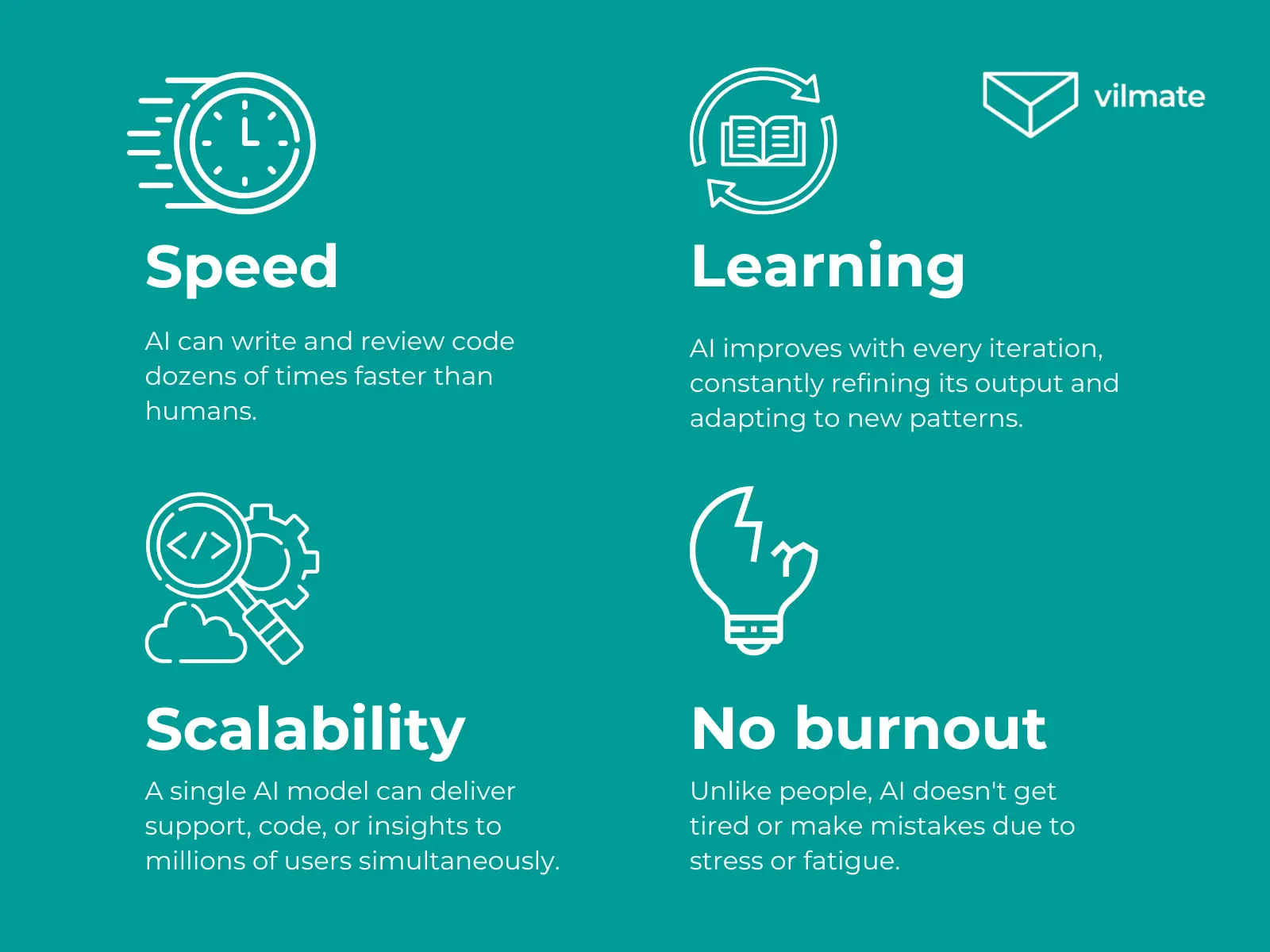 With all that in mind, it's easy to see why some predict that programming as a job might disappear. When you watch an AI write in 30 seconds what would take you half an hour, you can't help but wonder: "What's going to happen in a year or two?"
But don't jump to conclusions. In the next section, we'll examine why the programmer's role isn't going away—it's just changing. We'll also highlight which kinds of experts will be especially valuable in a world where AI works alongside us.
With all that in mind, it's easy to see why some predict that programming as a job might disappear. When you watch an AI write in 30 seconds what would take you half an hour, you can't help but wonder: "What's going to happen in a year or two?"
But don't jump to conclusions. In the next section, we'll examine why the programmer's role isn't going away—it's just changing. We'll also highlight which kinds of experts will be especially valuable in a world where AI works alongside us.
Is the Profession Dying? Not Really — It's Evolving
Bold claims that AI will destroy the programming profession often sound dramatic, but they're not always accurate. Yes, AI is moving fast. GitHub reported that by 2023, up to 46% of all code on the platform was written with the help of Copilot. However, we've seen this kind of change before: industrial automation, personal computers, the Internet, and cloud technology. Each time, jobs didn't disappear—they adapted.An Insider's View: Vilmate's CTO on the New Era of Programming
Igor Bagayev, Vilmate's CTO, is confident that we're not facing the end of the profession—we're entering a new era in software development: "AI isn't a threat—it's the next step. It's like the industrial revolution. When robots came to factories, jobs changed but didn't disappear. The same thing is happening now. The role of developers is transforming. AI takes over repetitive tasks, while people focus on higher-level work—architecture, decision-making, working with the business." He also points out that AI doesn't remove responsibility from developers. In fact, it makes their role even more critical: "AI can generate code, but it's still up to the developer to check it, decide whether to use it and ensure it meets quality and legal standards. This is especially true for security and working with sensitive data."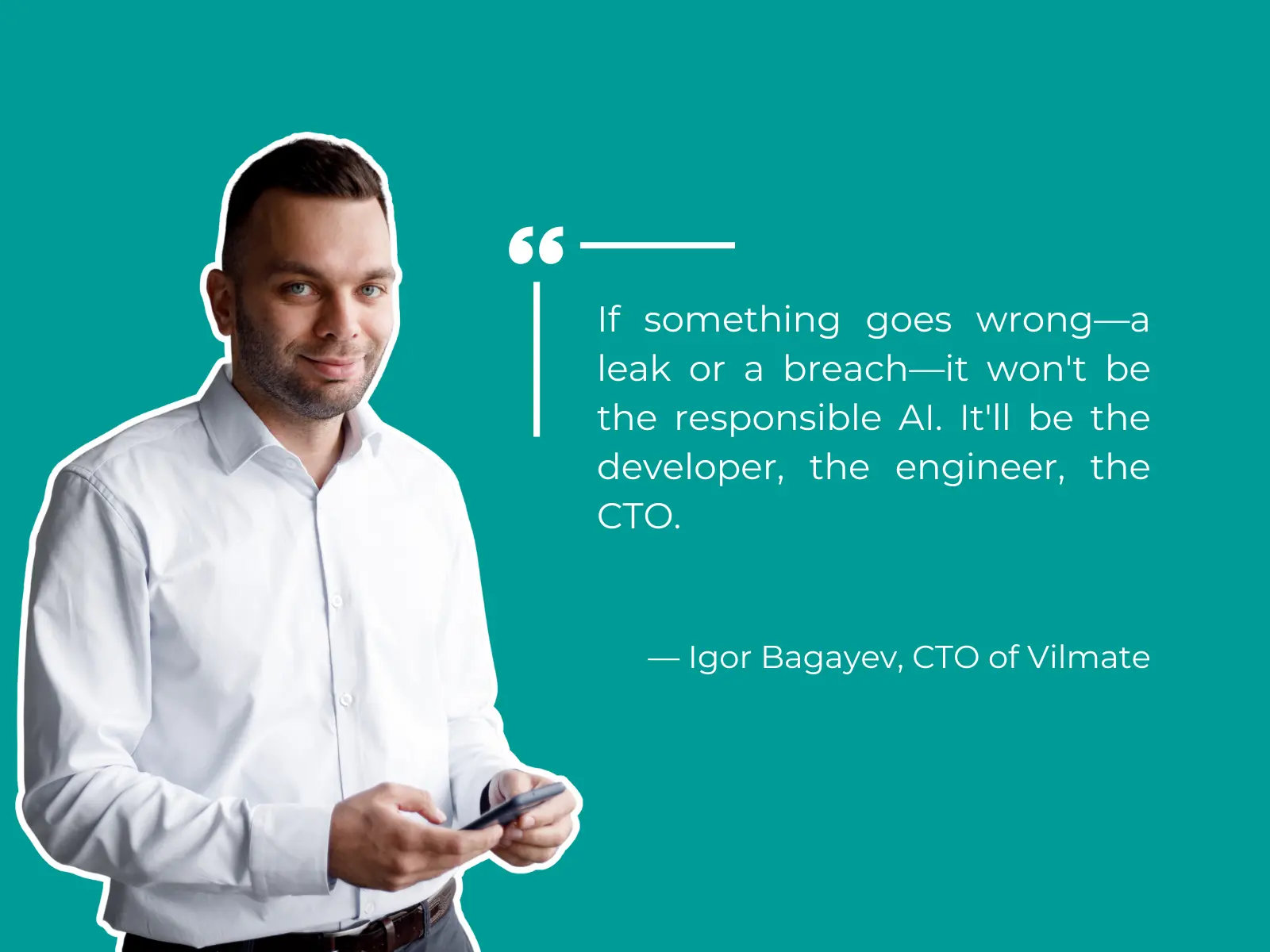 These risks are very real. AI is already limited—or even completely banned—in heavily regulated industries like healthcare, finance, and law.
"We're seeing cases where large clients include clear terms in their contracts that ban the use of AI in any part of the process. That's not just company policy—it's a legal requirement, and developers must respect it," Igor adds.
These risks are very real. AI is already limited—or even completely banned—in heavily regulated industries like healthcare, finance, and law.
"We're seeing cases where large clients include clear terms in their contracts that ban the use of AI in any part of the process. That's not just company policy—it's a legal requirement, and developers must respect it," Igor adds.
Why Humans Are Still Essential
AI works with massive amounts of data. But it still doesn't truly understand what it's doing. It can't:- make decisions in uncertain situations;
- adapt to unique business contexts;
- consider legal, ethical, or cultural factors;
- take responsibility for its actions.
Bill Gates Disagrees: Programmers Aren't Going Anywhere
Despite claims from some tech leaders that AI will replace programmers, Bill Gates sees it differently. In his view, humans will remain truly essential in only three fields: energy, biology, and—yes—programming. Gates believes that no matter how smart AI becomes, developers will still need to understand its logic and ensure that it's doing what it's supposed to do. He also addressed the question of whether it's still worth learning to code in an AI-powered world: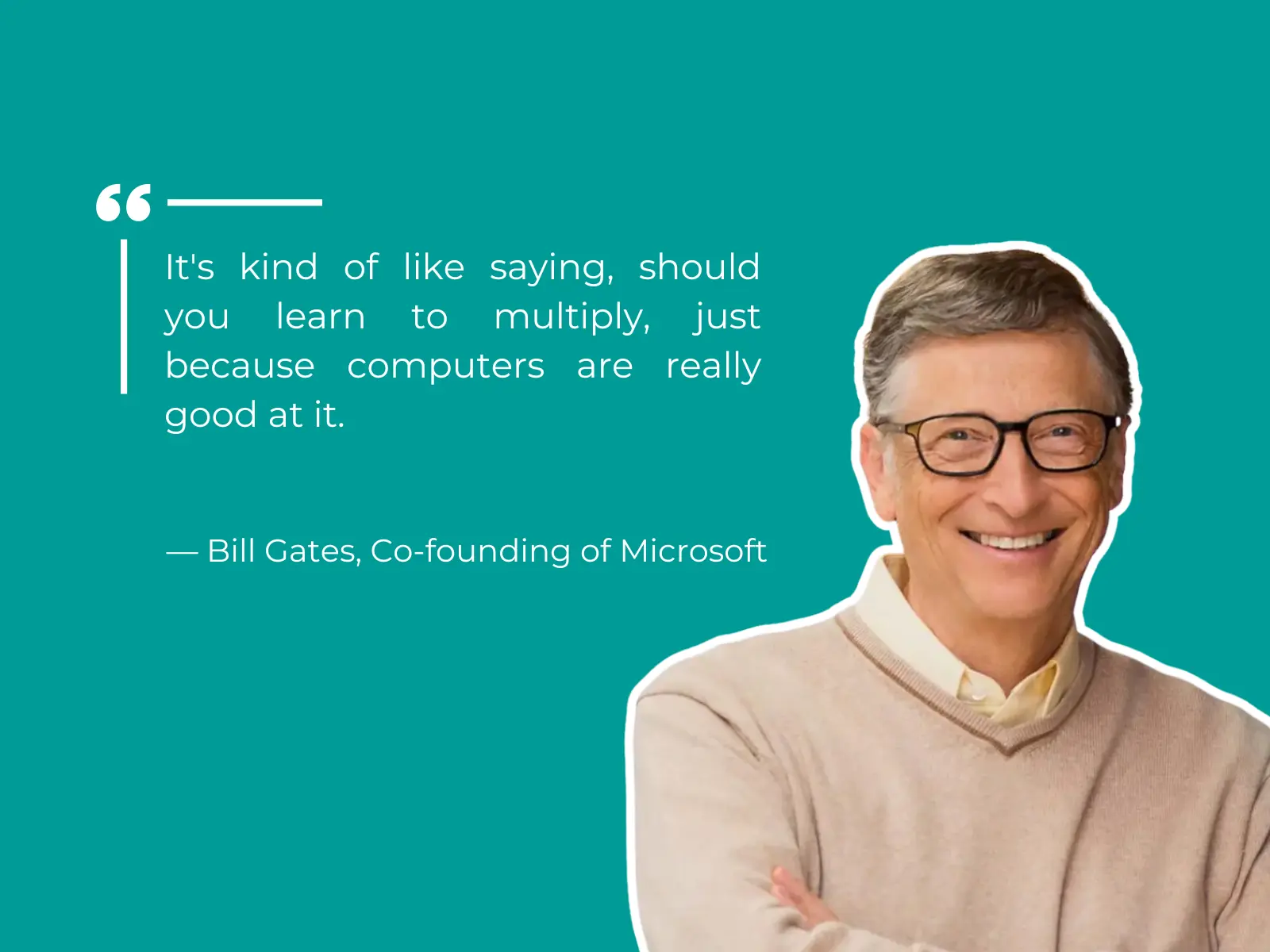 source
The point is clear: AI is a powerful tool, but it still requires human oversight, critical thinking, and responsibility behind the scenes.
source
The point is clear: AI is a powerful tool, but it still requires human oversight, critical thinking, and responsibility behind the scenes.
But What About Juniors?
It's true that many tasks that used to be done by junior developers are now handled by AI, making it harder to enter the profession. But, as Igor Bagayev points out, turning your back on junior talent would be a huge mistake: "Companies can't only hire seniors. There simply aren't enough of them—and they don't appear out of nowhere. Junior developers are the foundation. That's where future Senior developers come from. Even if AI takes over some tasks, companies still invest in growing young professionals." He also sees AI as a powerful tool for those who only start their career—not a threat: "Yes, the learning curve will be steep. However, junior devs learning to work with AI can grow much faster. Using AI as a learning partner or productivity booster—that's probably the smartest path into the profession today.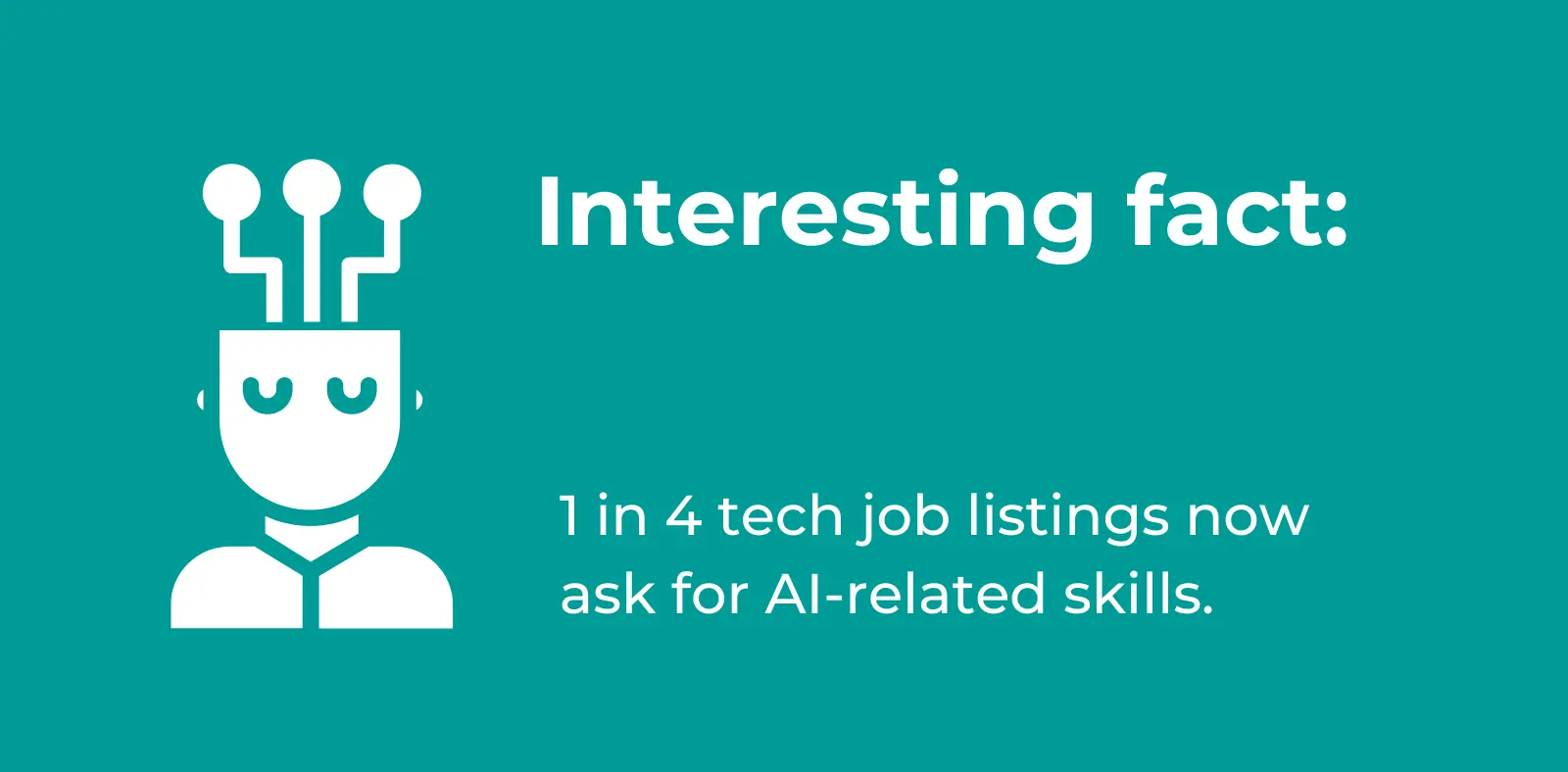 source
source
How to Stay Relevant in a World Where AI Is Already Here
Instead of fearing artificial intelligence, we should treat it as a tool like an IDE, framework, or library. It's not the one who resists change who wins, but the one who adapts to it. Here are a few areas worth focusing on right now:1. Learn to Work with AI, Not Against It
Tools like ChatGPT, Copilot, Claude, and CodeWhisperer aren't your competitors—they're your assistants. Learn how to use them effectively:- Prompt engineering — the art of giving AI the proper instructions;
- Integrating AI into the development pipeline;
- Using AI for testing, writing documentation, and optimizing code.
2. Develop Systems and Architectural Thinking
The higher the developer's skill level, the harder it is to replace them with AI. Architecture, system design, technology selection, scaling, and security all require experience, intuition, and deep understanding. These tasks still belong to humans. "Developers will move to a higher level, from coding to engineering solutions. Coding will become more accessible, but the demand will grow for those who can keep the whole system under control—from architecture to security compliance," says Igor Bagayev.3. Learn Industry Domains and Applied Knowledge
Those who know how to code and understand business, medicine, logistics, or finance will always be valuable. Companies need people who understand how to build something and why it matters.4. Strengthen Your Soft Skills
The ability to explain complex things in simple words, communicate with clients, make decisions, take responsibility, and collaborate in a team is more important than ever. These are the qualities that separate a strong professional from just a coder.5. Don't Ignore Legal and Ethical Aspects
Software development no longer exists outside the legal space. If there's a data breach, copyright infringement, or unethical system behavior, its humans will be held accountable.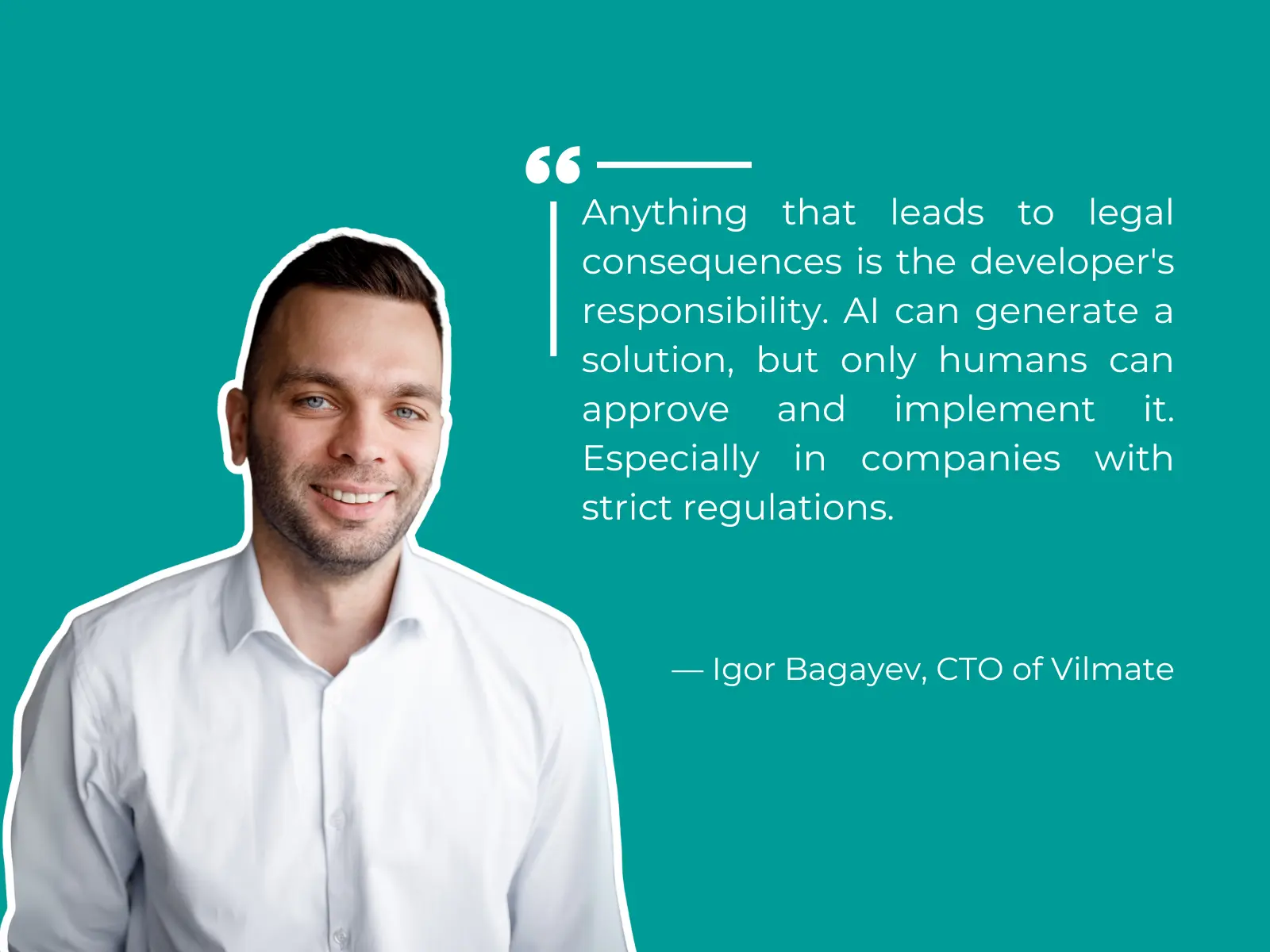
6. Keep Up with Tech and Keep Learning
The time when you could "learn one language and use it for life" is gone. Today, those who succeed are the ones who adapt quickly, stay curious, and aren't afraid to grow and change.Conclusion: AI Is Not the End — It's the Beginning
AI is changing the game. It takes care of repetitive tasks, speeds up development, and makes coding more accessible to people who couldn't enter the field before. Yes, this puts pressure on the job market—especially for junior developers. But it's not the end of the profession. It's the start of a new chapter. The role of the programmer is shifting. The future belongs to those who embrace change, keep learning, and use new tools wisely. And AI? It will soon feel as natural as code autocompletion or version control. How do you stay confident in this transition? Use AI as a launchpad. Strengthen your systems thinking. Learn the business side of tech. And most importantly—build the human skills no machine can replicate: empathy, responsibility, creativity, and critical thinking. At Vilmate, we're already working in this new reality. Our team:- uses AI tools daily to improve development and workflows;
- creates AI-powered solutions for clients across industries;
- knows how to integrate AI safely, efficiently, and soundly for business.




